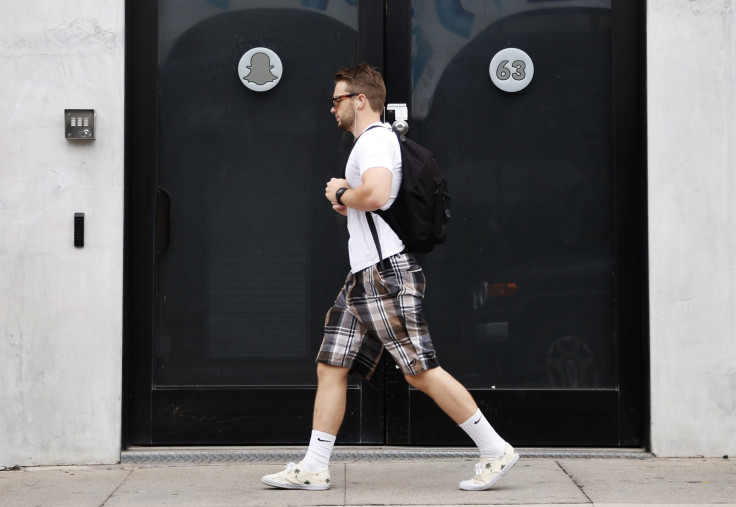The Snappening: How Much Trouble Leaked Snapchat Photos Can Get You

Viewing, downloading or sharing the nearly 98,000 Snapchat photos and videos reportedly leaked online as part of the so-called Snappening is an invasion of privacy that could result in a federal prison sentence of up to 20 years, according to criminal lawyers with experience in child porn cases. The files -- believed to have been leaked by 4chan users -- reportedly contain images and videos of naked children, a crime generally not taken lightly by prosecutors or federal law.
"The Internet is like this black hole and people are inquisitive and their inquisitveness can get them in trouble," said Joe D’Andrea, a Pennsylvania criminal defense attorney with years of experience defending people in child pornography cases. "But the possession of child pornography is incredibly serious, especially when prosecuted under federal guidelines."
The Snappening was so named because it is seen as a darker follow-up to the ongoing Fappening leaks, in which users of the Web forum 4chan have posted hundreds of nude photographs of celebrities including Jennifer Lawrence, Kate Upton and Rhianna without their permission in the past few weeks. The Fappening could lead to charges against whoever hacked the accounts and lawsuits by the victims. But the Snappening could bring tougher penalties because it involves children.
If the files are encountered on another website and viewed without being downloaded to a computer or storage device or transmitted to other people, prosecutors likely would have a hard time winning a conviction, D'Andrea said. But viewing the illicit images and videos without downloading them may be difficult as Reddit and 4chan are reportedly taking them down almost as quickly as they are uploaded.
"I’m not sure they can get anything for viewing it. Possessing it is a different story," he said. "If you show me a picture, I'm not sure I can get in trouble for just looking at it. You need to possess it to be committing a crime."
The same can be true if child pornography is downloaded in error and then deleted or reported immediately to law enforcement. Intent is key in child porn cases, said George Murphy, a Houston criminal defense lawyer with extensive experience in federal child pornography cases.
"It absolutely matters what their intent was. You can't be prosecuted for having child pornography unless you knowingly possess it," he said. "If I download a file thinking it's nude pictures of Lindsay Lohan and it turns out to be child pornography, then I’m not guilty. I haven’t committed the crime of knowingly possessing child porn. You’ve gotta possess it and you've got to know you possess it. And if it comes up on your computer and you delete it immediately and especially if you report it to law enforcement, then you're not guilty."
Charges still can be filed if a law enforcement official lawfully searches a computer and finds child pornography, but if a defendant can prove he did not knowingly possess the images or that authorities were promptly alerted, a strong defense could be mounted.
Purposely downloading Snappening files and not deleting them would likely lead to much greater criminal liability. Knowingly possessing child pornography is a federal crime punishable by up to 10 years in prison, Murphy said. And D'Andrea said under certain circumstances, it can result in even longer sentences.
"There are very significant federal statutes that prohibit possession of child pornography. The federal sentencing guidelines start at a very high level and then it can get enhanced -- did you use computer technology, how many images, the age of the person in the image, and it goes up from there," D'Andrea said. "If it’s a federal case you can easily find yourself in jail for over 10 years if it gets enhanced."
Distributing the images could send you to prison for far longer. Distribution can mean a number of things, from emailing images to friends, to submitting them to underground child porn forums. Federal sentencing guidelines require people convicted of distributing child pornography receive five- to 20-year prison sentences.
Punishment doesn't end once someone serves time for possession or distribution of child pornography. Those convicted of such crimes also will have to be registered as sex offenders, which imposes numerous restrictions, and may be required to attend counseling or other rehabilitation programs.
"Don't ever open anything off the Internet that you don't know what it is, because nothing good can come of it and you don't want to have any traces of something that can be seen as child pornography," D'Andrea said. "And the consequences can be very, very serious."
© Copyright IBTimes 2025. All rights reserved.





















